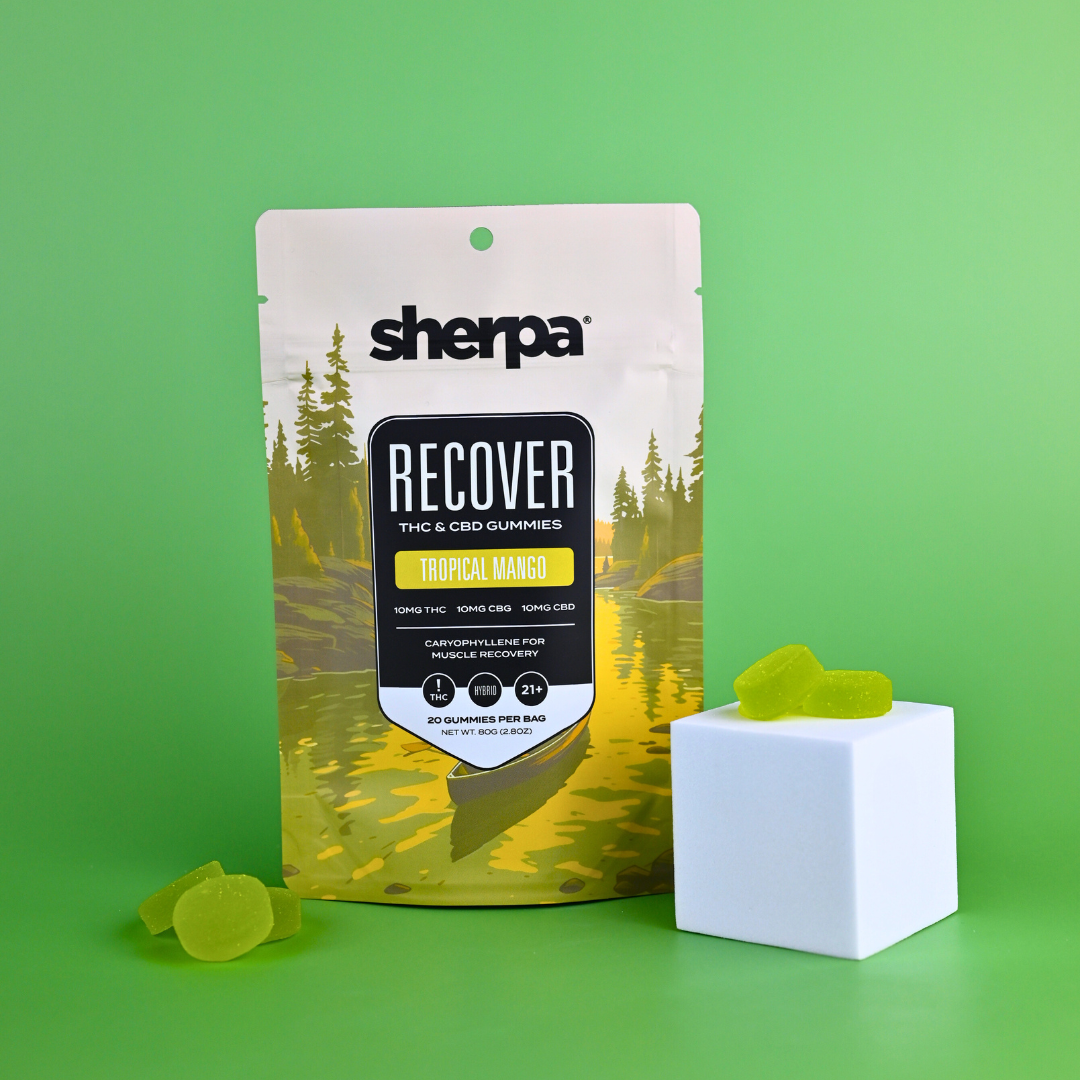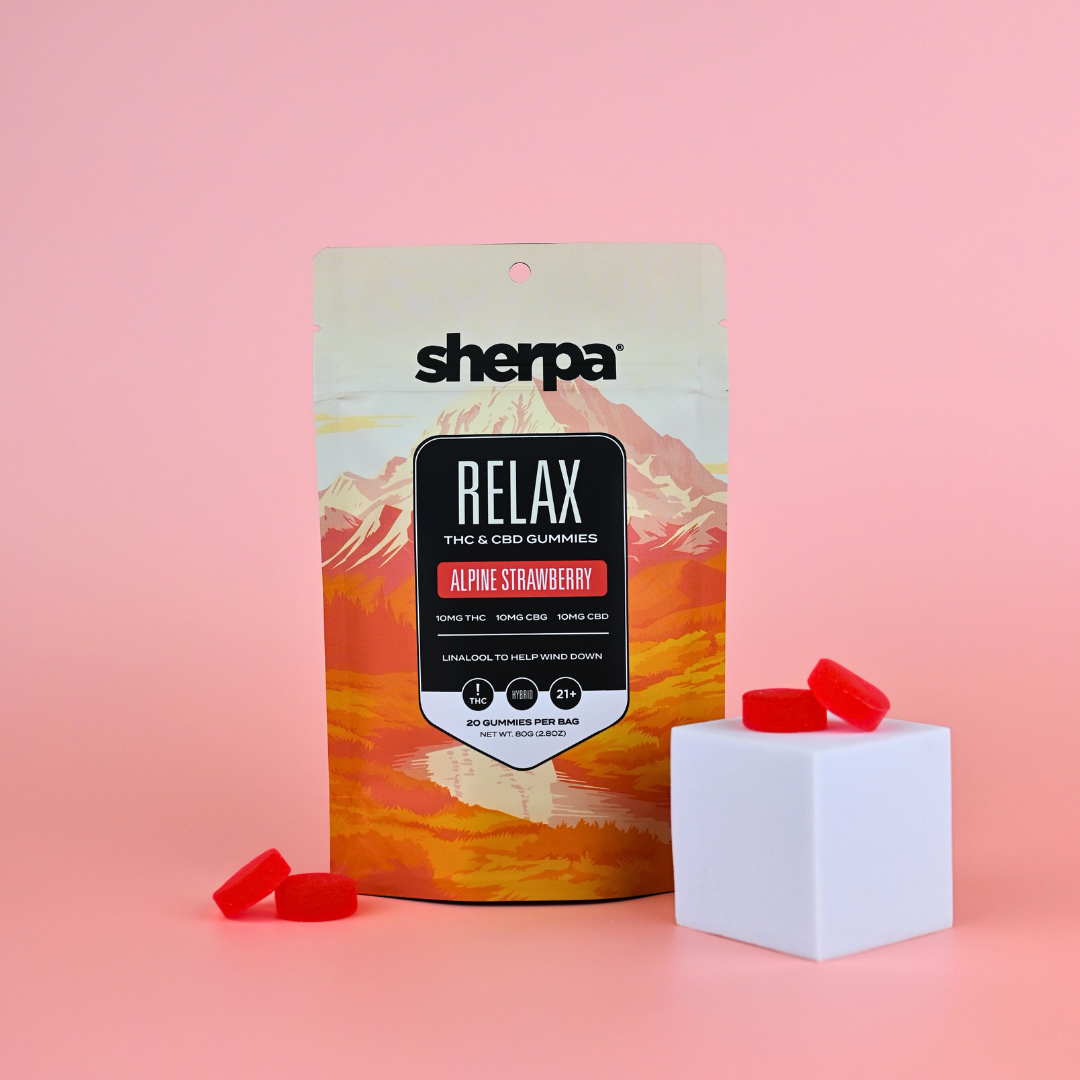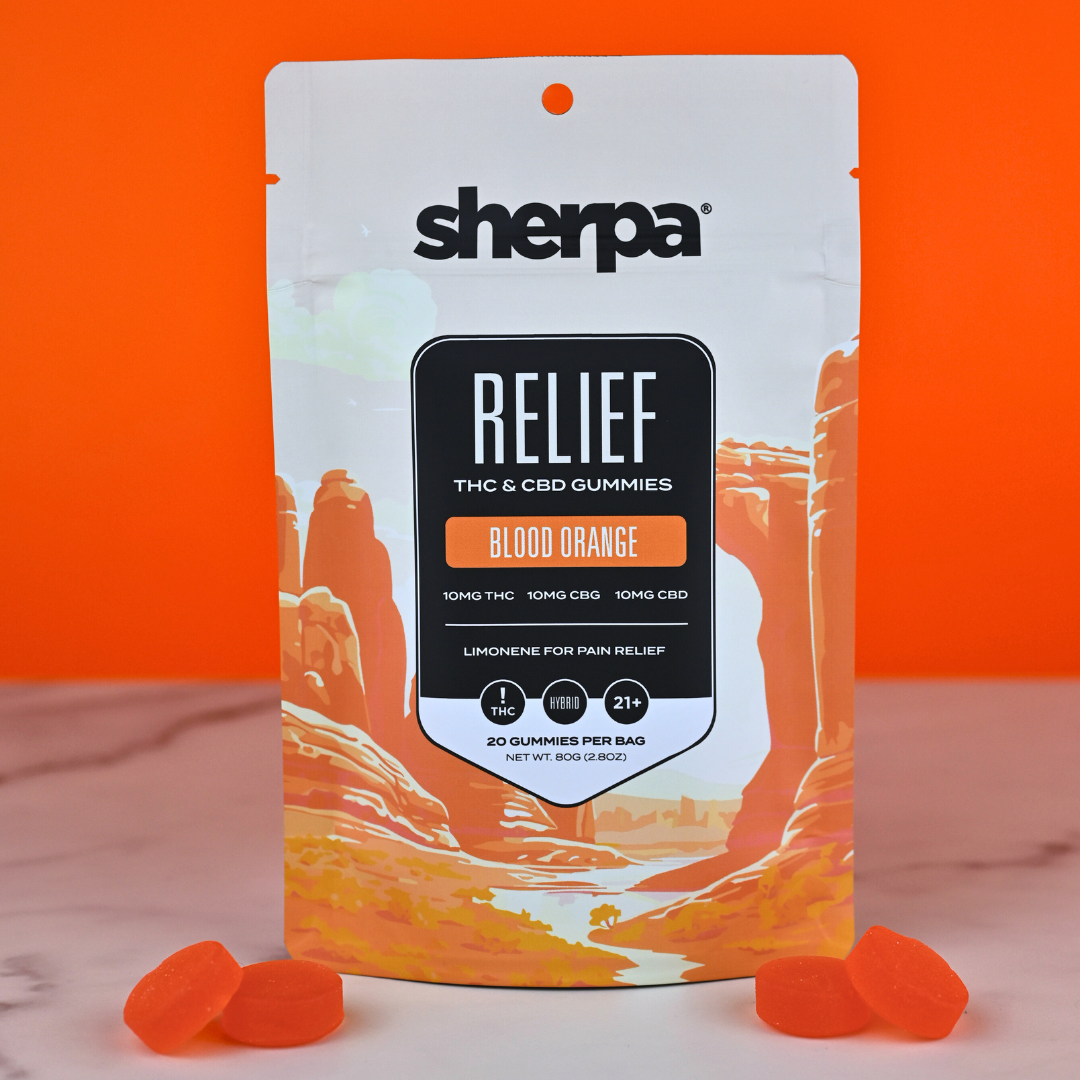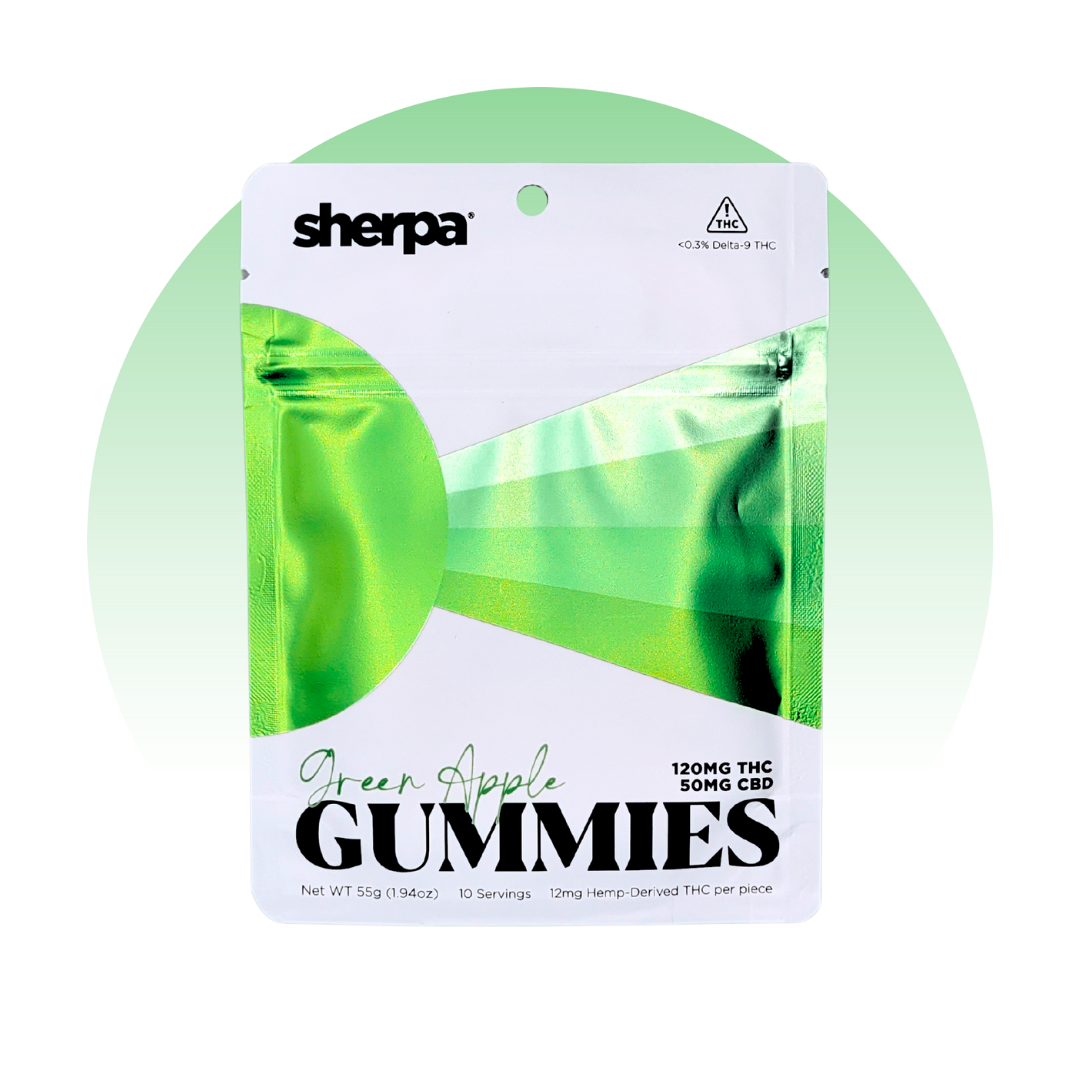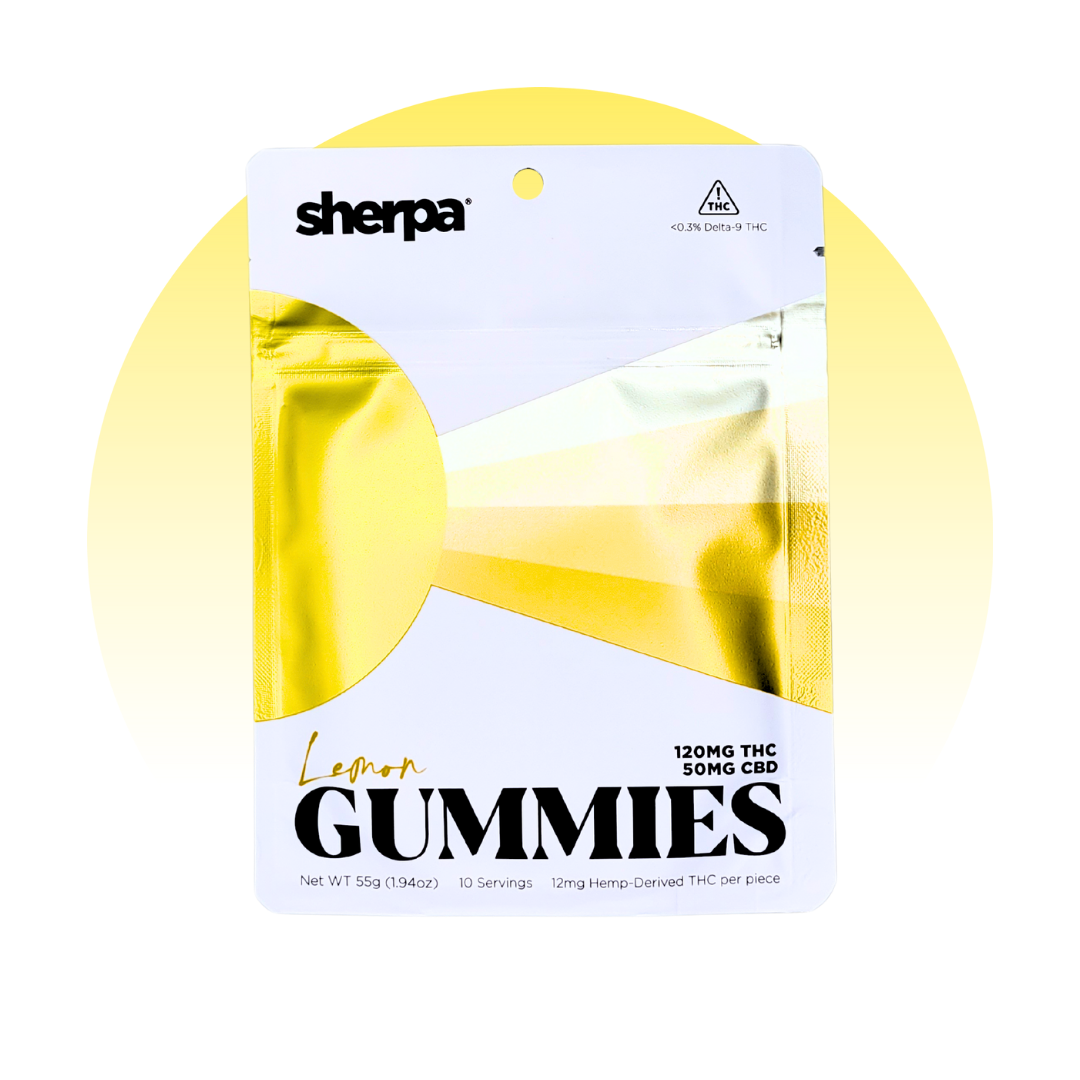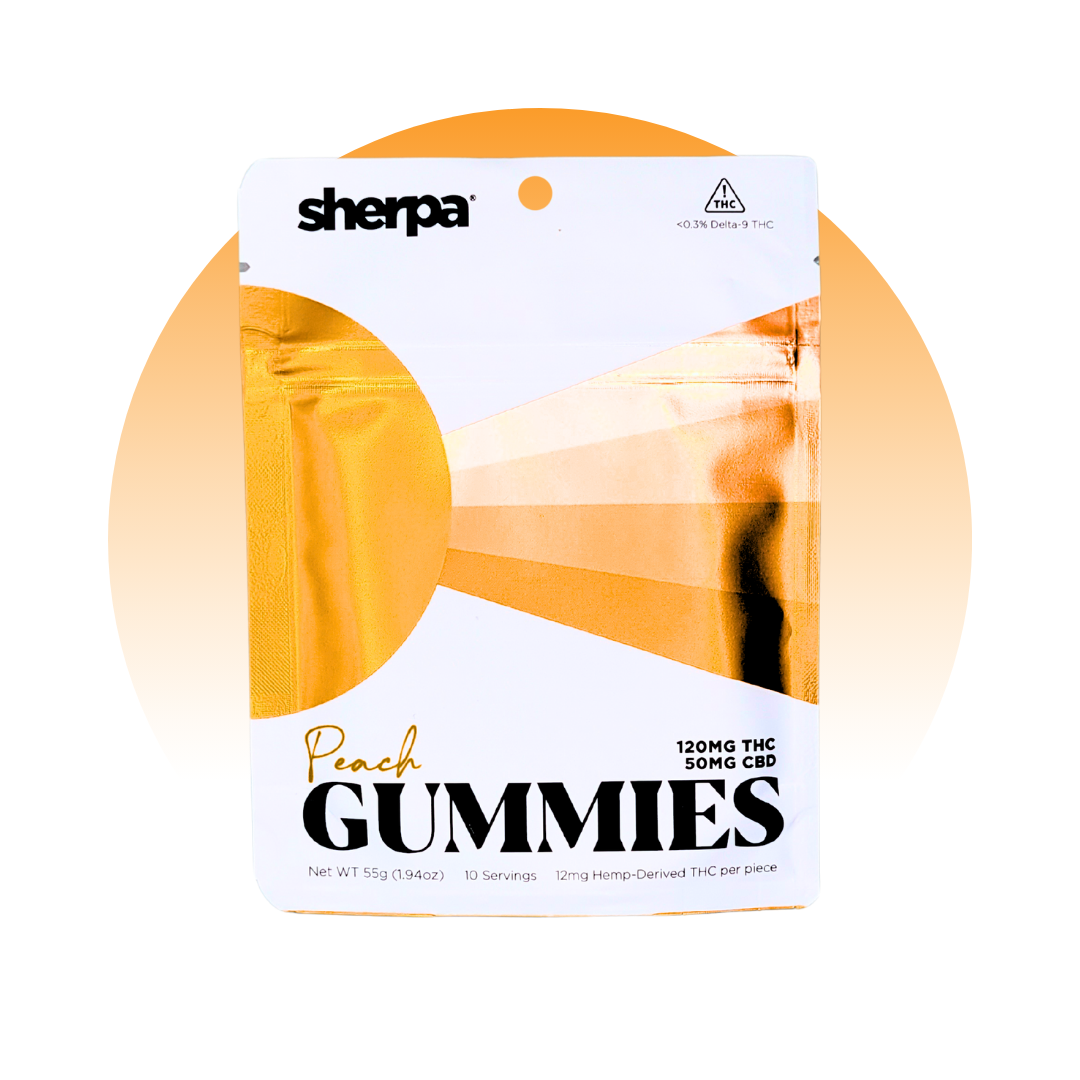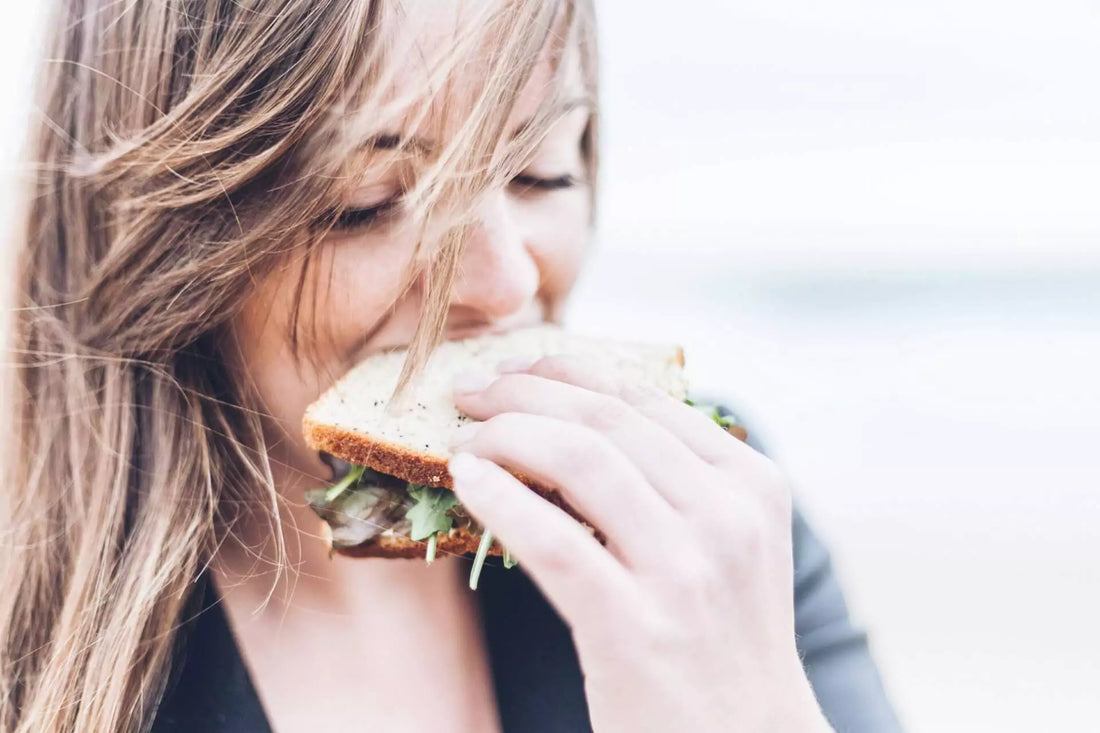
Our Blog
Do Edibles Work Faster With Food?
Do Edibles Work Faster With Food?
If you've been around the block, you've likely tried a handful of ways to consume cannabis. Smoking, vaping… maybe dabs even. But seasoned cannabis users and newcomers alike often wonder about the same things about edibles in particular — how can you make edibles work faster? Do they hit quicker when taken with food?
This is actually a pretty interesting anatomical question with several factors at play, including your metabolism, your body composition, the type of edible you're consuming, and a myriad of other factors. Here, we'll dive into the science behind edible onset times, how food interacts with cannabis, and whether taking edibles with food is a good idea or not.
Let's start where it starts, though — with the basics.
The Basics of Cannabis Edibles: How They Work
Before we can understand the relationship between food and edibles' onset times, it's helpful to have a basic understanding of how cannabis edibles work in the body. Unlike smoking or vaping, which deliver cannabinoids — those are the active compounds in cannabis — directly into your bloodstream through your lungs, edibles must pass through your digestive system first.
That means when you consume an edible, the cannabinoids are metabolized by your liver before they enter your bloodstream. This process turns delta-9-THC — the primary psychoactive compound in cannabis — into 11-hydroxy-THC, a more potent form of THC. This metabolized THC then crosses the blood-brain barrier and binds to receptors in the brain, leading to a stronger, more sustained high.
This also means that the onset time for edibles is generally slower compared to more traditional inhalation methods because of the time it takes for the cannabinoids to be digested, metabolized, and absorbed into the bloodstream. Typically, it can take anywhere from 30 minutes to two hours for you to begin feeling the effects of an edible, though this can vary based on several factors, including whether you've eaten beforehand. Let's talk about that next.
Does Eating Food Affect the Onset of Edibles?
In order to answer the question of whether food affects the onset time of cannabis edibles or not, we need to look at how the body processes both. The process of digestion and absorption of cannabinoids can be influenced by several variables including the type of food consumed, the timing of consumption, and individual metabolism. Here's how it generally works:
Food Slows Down Digestion and Absorption
The most important factor when it comes to food and edible onset time is digestion. When you eat a meal, your stomach and digestive system are busy breaking down food, which will slow down the rate at which the edible is absorbed into your bloodstream.
If you consume cannabis edibles on an empty stomach, the cannabinoids will pass through the digestive system relatively quickly, potentially leading to a faster onset. Keep in mind though, this can also mean that the effects may hit harder and feel a little more intense. This can be overwhelming for some people — especially those new to edibles.
If you eat an edible with or after a meal, though, the food in your stomach will slow down the digestive process. This means a slower onset time, but the effects may be more gradual and less intense. So long story short, eating an edible with food will probably mean it takes longer to set in, but the effect is going to be a little more mellow. That said, the type of food you have in your stomach is going to play a role, as well.
Fat Can Enhance THC Absorption
While food in general can slow down the absorption process, fatty foods might actually help improve it. Cannabinoids like THC are fat-soluble, meaning they dissolve better in fat than in water. When you eat a meal that contains healthy fats — think avocado, nuts, or olive oil — the cannabinoids in the edible can bind to the fat molecules in your digestive system, enhancing absorption and possibly leading to a stronger effect.
Now that doesn't mean if you have some avocado toast with your edible you're going to be blasted out into the universe — you just might notice a little bit of a stronger effect. This also goes for cannabis-infused baked goods that contain butter or oil. These might be a little more potent than other forms of edibles you might be used to seeing, like candies or gummies.
Other Factors That Influence Onset Time
While food is a big factor in determining how quickly an edible can take effect, there are several other considerations to keep in mind when you're wondering about onset times.
Your Metabolism
We're all unique, and each person's metabolism is different. Some people have faster metabolisms, meaning they may process edibles more quickly, while others have slower metabolisms, which could lead to a delayed onset and potentially longer-lasting effects. Factors like age, activity level, and overall health can influence how quickly your body processes food and cannabis.
So that means someone with a high metabolism may feel the effects of an edible faster than someone with a slower metabolism. It's not exactly like we all have a control panel that clearly displays how fast our metabolisms are running, though. That's why we always recommended to start with a low dose, especially if you're new to this.
Tolerance to Cannabis
If you're a regular cannabis user, your body might be accustomed to processing THC more efficiently, meaning you could experience faster onset times and feel the effects less intensely than someone new to cannabis. New users, on the other hand, may have a slower onset time but could experience stronger effects once the edible finally kicks in since they haven't built up a tolerance yet.
Type of Edible and THC Dosage
Like we hinted at above, the type of edible and the dose of THC can also impact onset times. Cannabis-infused beverages or tinctures, for example, may have a faster onset time compared to gummies or baked goods. Beverages, in particular, can be absorbed more quickly because they don't need to be broken down as much in your digestive system.
Additionally, the dose of THC can affect how you experience edibles. A smaller dose, like 5mg to 10mg, might take longer to feel, and the effects will be milder. A higher dose — say 20mg or more — will hit harder and might be felt a little more quickly, although the full effects might take a long time to fully take hold. These sliding scales are different for everyone and take experimentation to nail down with any consistency.
Does Food Impact the Duration of Edible Effects?
While food can and will affect your onset time, it won't typically change the duration of the edible's effects. Once the cannabinoids are absorbed into your bloodstream, they interact with your body's endocannabinoid system and produce their effects, which can last anywhere from four to eight hours, depending on the dose and your tolerance level. Food might impact this slightly depending on your body chemistry, but there's nothing you can eat that will "turn it off," so to speak. That's why it's important to understand the dosage that works for your body and to not push the limits too much — remember you can never un-eat an edible.
With that in mind, let's move on and take a look at some guidelines for enjoying edibles.
Tips for Enjoying Edibles Safely
Cannabis edibles can be a great way to experience the therapeutic and recreational benefits of cannabis without the need for smoking or vaping. That said, they do take longer to take effect, and the effects can be more intense, so consuming them safely and intentionally is important. Whether you're a first-time user or a seasoned cannabis consumer, here are some key tips to help you enjoy your edibles safely and effectively.
Take it Slow
If you're new to edibles, starting with a low dose is always a good idea. They can be a little unpredictable for new users, and their delayed onset can lead to accidental overconsumption. Unlike smoking or vaping, where the effects are almost immediate, edibles can take anywhere from 30 minutes to two hours to kick in. Don't be the guy that says, "Hey, this isn't working," and end up on the couch for the rest of the day because they took too much too fast.
Think About Timing
The timing of when you take your edible plays a big role in how the experience goes. If you're looking for a faster onset, consuming your edible on an empty stomach can help. Without food in your stomach, the edible is absorbed more quickly, meaning the cannabinoids can start to take effect sooner.
If you want a more gradual, smoother experience, it's best to eat a light meal or snack before taking your edible. The digestive process slows down when food is present in the stomach, which will delay the onset but may also help reduce the intensity of the effects. This can help create a more manageable experience for some folks.
Watch the Fat Content
The composition of your meal or snack can also influence how quickly and how much THC is absorbed. Remember that cannabinoids like THC are fat-soluble, which means they bind to fat molecules and are absorbed more efficiently when taken with fatty foods. If you consume an edible along with a meal that contains healthy fats, it can help your body absorb more THC and may enhance the overall experience.
Stay Hydrated
One common side effect of cannabis, especially edibles, is dry mouth. This can be uncomfortable and could even lead to dehydration if not properly managed. If you're dehydrated or not drinking enough water while consuming edibles, you might experience stronger side effects, but not the fun ones you're going for. Drinking water can help ease these effects and keep you feeling more comfortable.
Choose the Right Product
Not all edibles are created equal, and different products can have varying onset times, durations, and effects. The type of edible you eat can affect how quickly the effects kick in, so consider your needs and pick the product that suits you.
- Infused Beverages and Tinctures: Cannabis-infused beverages and tinctures tend to have a faster onset compared to traditional edibles like baked goods or gummies. Liquids are absorbed more quickly by the body because they don't need to be broken down in the digestive system as much as solid foods. Not wanting to wait around to feel the effects? These are your best bet.
- Baked Goods and Gummies: Foods like brownies, cookies, and gummies need to be digested and processed by your liver before the cannabinoids take effect. While this means they have a slower onset, the effects tend to last longer, making them great for prolonged experiences.
- Dosing Considerations: Different edibles have different potencies. Be sure to check the label and understand the dose before you take it. Remember, starting with a smaller, lower-dose product is always safer if you're unsure of your tolerance. If you're worried about it, take half!
Ultimately, you want to choose an edible that fits your desired experience. If you're looking for fast-acting effects, opt for a beverage or tincture. If you need longer-lasting relief and don't mind waiting a bit, go for a baked good or cannabis gummy.
Know Your Tolerance and Experience Level
Your cannabis tolerance also plays a huge part in how you experience edibles. If you're a seasoned user, you might have a higher tolerance and could handle a larger dose of THC without any negative side effects.
On the other hand, if you're new to cannabis or haven't used it in a while, starting with a lower dose is crucial to avoid overwhelming effects. All of our products are clearly labeled with how much THC they contain, and we offer a wide range of products for users of all tolerance and experience levels. That said, if you're unsure how much you should be taking, it's best to err on the side of caution. No one ever regretted taking just half.
Create a Safe and Comfortable Environment
Edibles can have powerful effects that last for several hours, so it's important to ensure you're in a comfortable, safe space when you consume them. You'll want to avoid activities that require focus, like driving or talking to your boss, until you know how the edible affects you. A good rule of thumb is that if it makes you a little uncomfortable while you're sober, it's not going to be good while you're on edibles. If you don't like crowds, don't take a gummy and go to a music festival, you know?
Avoid Mixing with Other Substances
When consuming cannabis edibles, it's important to avoid mixing them with alcohol or other substances that can intensify the effects. Alcohol in particular can amplify the sedative effects of THC, leading to an unpleasant or disorienting experience. Similarly, certain medications can interact with cannabis, affecting your overall experience. Even the stimulant effects of coffee can throw things out of whack sometimes. As best you can, stick to just one thing at a time.
Final Thoughts on the Relationship Between Edible Cannabis and Food
So yes, the short answer is that food can influence the onset time of cannabis edibles, but it generally slows down the process rather than speeding it up. That said, while eating a large meal will probably delay the effects, it might also make the experience smoother and less intense.
That said, it's not super cut and dry. The relationship between food and edibles depends on various factors, including the type of food, your metabolism, your tolerance to cannabis, and a huge list of other factors. It's important to experiment and find what works best for you. So listen to your body and do what feels right! It won't lead you wrong.
